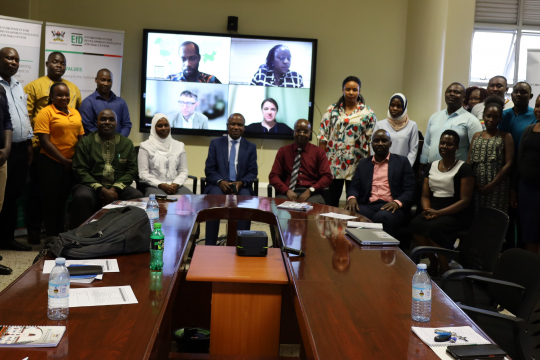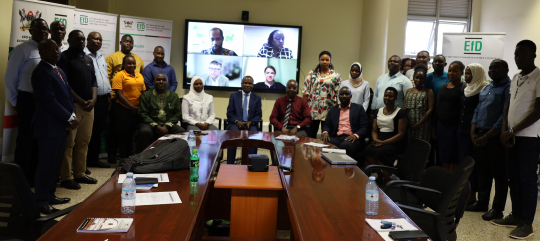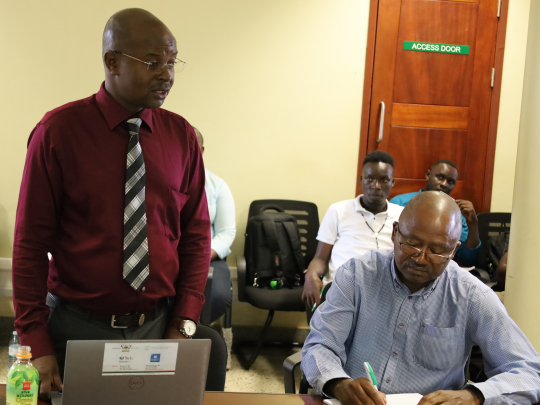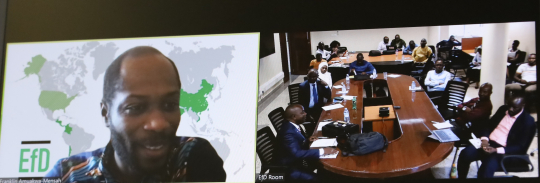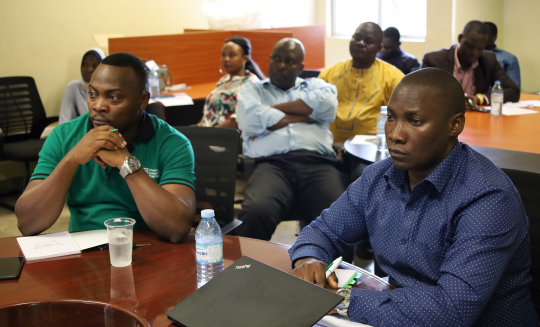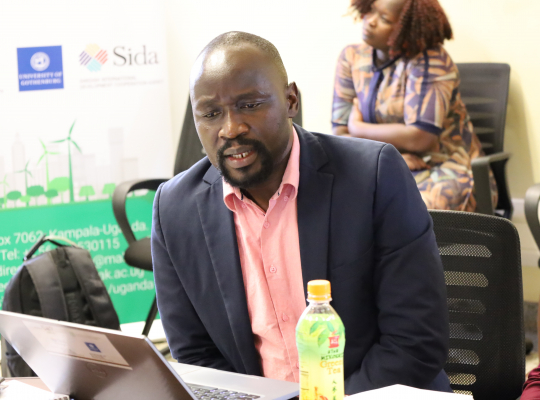The Environment for Development Initiative (EfD) Makerere Centre has launched two new collaborative projects, one on improving the National Water Authority’s water bill payments and one analysis of the Forest Authority’s afforestation projects.
The projects were launched at one of the center's seminars on 13th October 2022. The function was graced by the Principal of the College of Business and Management Sciences, Professor Eria Hisali as chief guest. It was also attended online by the EfD’s Research Manager, Franklin Amuakwa-Mensah, and project collaborators.
Late or no payment is a serious problem
One of the projects is titled, Improving Bill Payments for Water and Sanitation in Uganda and is spearheaded by Professor Edward Bbaale as the Principal Investigator. Edward Bbaale is also the Director of EfD-Mak Uganda. He is assisted by Co-Principal Investigators Dr. Nicholas Kilimani (EfD-Mak & Makerere University) Dr. Rose Kaggwa (National Water and Sewerage Corporation), Dr. Nicholas Mwebaze (National Water and Sewerage Corporation) and Dr. David Fuente (EfD & University of South Carolina)
Edward Bbaale said the study was based on the global water and sanitation infrastructure challenges and the need to respond to SDG 6 on the provision and attainment of Safe and affordable water and sanitation for all by 2030 and Uganda’s NDP III (National Development Plan) and Vision 2040- – increasing access to safe water for all.
“Arrears, that is, late payments, undermine the financial sustainability of the utilities. For example in South Africa households owe municipal governments 40 billion rand (about 4 billion USD), in Nairobi, Kenya about 60% of customers’ accounts are in arrears while in Kampala, Uganda 57% of residential customer accounts are in arrears,” Edward Bbaale said.
Improving payments can give access to water for more people
The study will be conducted in Kampala with the National Water and Sewer Corporation (NWSC). It’s aimed at reducing customer arrears and bill non-payment, improving the financial sustainability of the utilities to ensure its investments, and also increasing the social welfare benefits from the agency’s investments
The project will document pathways through which improved billing can result in better bill payment hence sustained revenue for the agency.
“Improving the agency’s financial sustainability enhances its ability to improve the quality of services and the expansion to households who lack access to piped water and sanitation services. There are welfare benefits associated with the improved quality and coverage of the agency’s services, such as improved health, increased time for productive work and increased school attendance,” said Edward Bbaale.
Studies effects of afforestation projects
The second project is titled Quasi-Experimental Analysis of National Forestry Authority Afforestation Projects in Uganda and is being led by Dr. Patrick Byakagaba of Makerere University. The Project Co-PIs are Professor Katrina Mullan (University of Montana), Professor Jeff Vincent (Duke University), John Diisi (National (Forestry Authority Uganda), and Peter Babyenda of Makerere University.
Uganda continues to experience wood deficit and natural forest loss and this led NFA and its partners to invest in afforestation projects. This study intends to evaluate these afforestation projects in terms of their contribution to the well-being and land use/land cover dynamics.
Compares different villages
The study sites will be villages adjacent to each reserve and control communities will be more than 5 km from the reserve within the same region. The selected study areas are Katugo (Nakasongola) which has a long history of multiple harvests and mostly planted by the NFA; Kasagara (Nakasongola) with more recent planting, by many small private planters; Bujawe (Hoima) with more recent planting, small private planters and; and Kachung (Dokolo), more recent planting, single large private planter with FSC certification.
“The aim is to evaluate the socio-economic and forest-cover impacts of the forest plantations but specifically to analyze the impacts of NFA afforestation programs on human well-being
and also to assess the impacts of NFA afforestation programs on land use/land cover dynamics,” explained Patrick Byakaga.
“The proposed proxy indicators for households’ well-being that will be studied include employment, income, food security, and poverty.”
Spatial datasets from the National Forestry Authority will be used for assessing land use/land cover dynamics, and the Theory of change by SPGS will be applied in investigating the impacts.
Report by
Jane Anyango
Communication Officer
